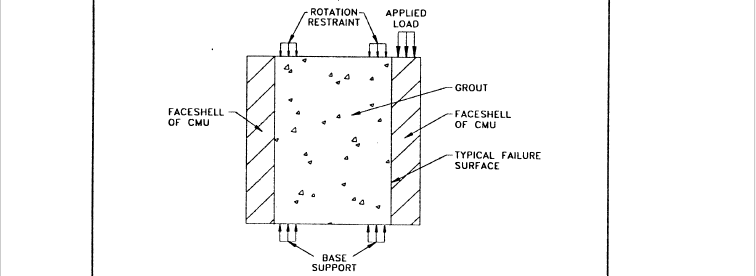1 Director of Research, National Concrete Masonry Association 2302 Horse Pen Road, Herndon, Virginia 20171
2 Director of Engineered Design and Construction, National Concrete Masonry Association 2302 Horse Pen Road, Herndon, Virginia 20171
ABSTRACT
This research study was perforn1ed to address questions from masonry inspectors about whether grouting operations should be permitted when concrete masonry walls are wet. . The magnitude of bond .developed between grout and concrete masonry units as well as the compressive strength of the grout was determined for concrete masonry units grouted at moisture contents of 30, 50, 70, and 90% moisture contents (expressed as percent of total absorption). Bond strengths were determined using a guillotine shear test as required by the California Building Codel21. _The research showed that the moisture content of CMU’ s at the time of grouting has little effect on grout bond strength and grout compressive strength. It is believed that the hydrostatic head pressure is sufficient to drive free water from the grout into the concrete masonry units, regardless of the moisture content at the time of grouting.
KEYWORDS: bond, bond strength, concrete masonry, compressive strength, guillotine, grout, inspection, shear
7348.pdf



